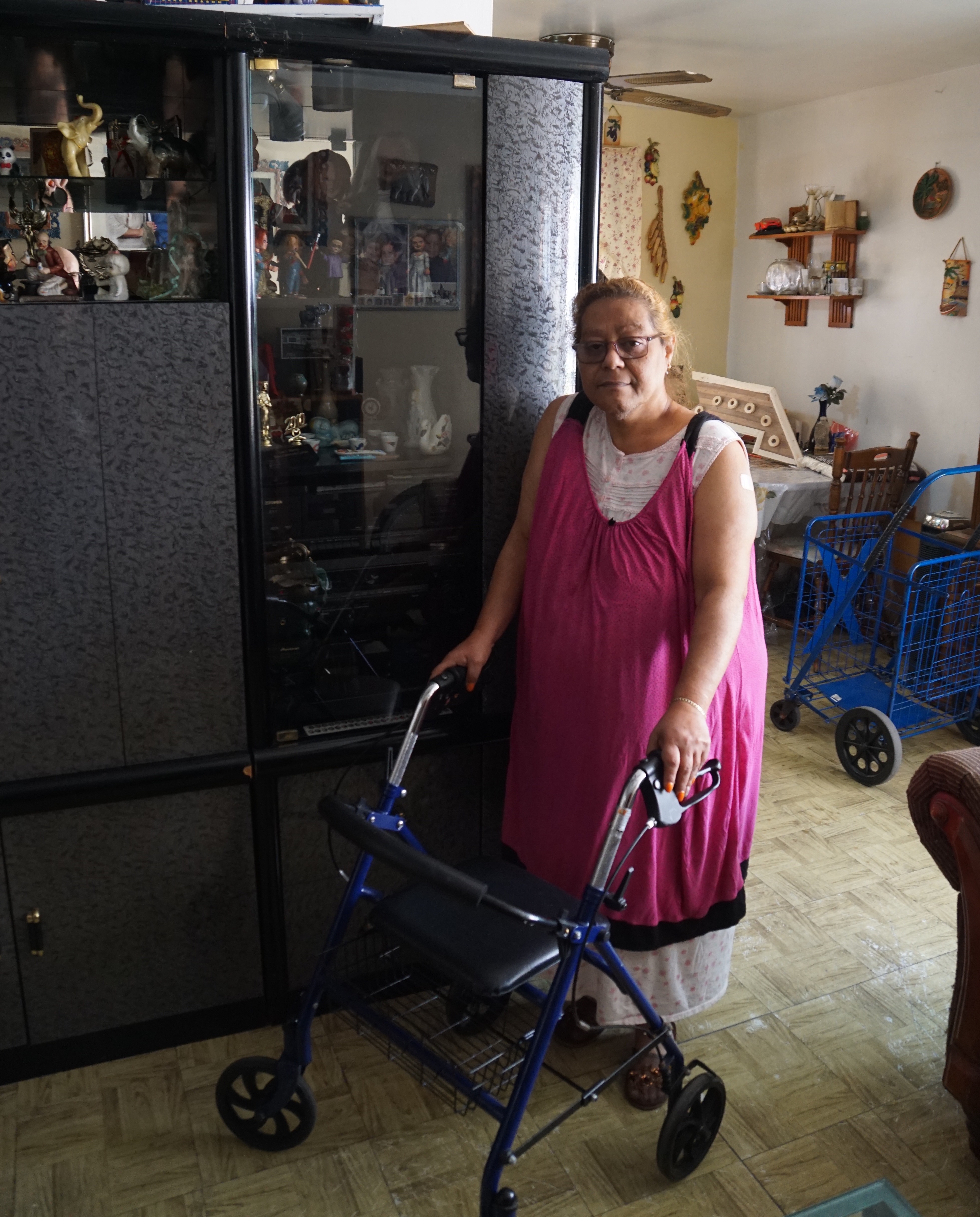
Residents with walkers and wheelchairs say they’re trapped
Just after dawn on a recent weekday, a 5-foot-3-inch woman pushed open the street-level door at a Betances IV building in Mott Haven with her 60-pound daughter slung over her right shoulder. She had carried the girl down 33 steps from her third-floor apartment to the street, where the girl’s school bus would pick her up.
At ground level was the girl’s wheelchair, a heavy Focus CR model. The mother, who asked not to be named because she fears retribution from building management, had rolled it from a nearby apartment building where she is housing it temporarily because there is a working elevator. At the Betances IV building, the elevator has been out of service since August 7.
Elevators at six Betances buildings administered by NYCHA have been taken out of service for a planned 16 weeks as part of a $3 million replacement project. Each building has just one elevator, and many Betances residents who use walkers and wheelchairs to get around say the outages have left them with no good options for leaving home.
NYCHA operates portable stair-climbing machines that convey wheelchairs up and down stairs, and offers temporary household relocation to those who prefer not to use the machines. The mother needs to put her daughter on the school bus before the machines are regularly available for use, and she says it does not fit her daughter’s wheelchair anyway. Other residents with disabilities say those solutions do not accommodate them either.
Nelly Marrero, 60, has two bad knees and a fractured ankle she suffered a couple years ago while walking and did not get treated for weeks. She uses a walker to get around. She says when she asked a Betances manager where NYCHA would relocate her during the elevator outage, that manager told her Co-op City, though NYCHA does not relocate residents into private developments. In the end Marrero did not request a relocation.
Relocating to a new neighborhood from her third-floor apartment in Betances would have meant navigating unfamiliar territory and finding new doctors.
“Hello? I’ve been all my life in this area,” she says.
Marrero can take the stairs with help from her son, Luis, 33, who lives with her but works in Westchester County. If he’s not around, she can ask a favor of a neighbor’s home healthcare attendant.
If she can plan it, she can call the building’s management office to request a Stair-Trac or Scalamobil machine that holds a wheelchair and crawls slowly up and down stairs.
Attendants can accommodate same-day requests for the stair-climbing machines, according to a NYCHA spokesperson, but residents in three separate apartments said that building management has told them the lead time was 24 or 48 hours.
Attendants are available to bring the machines from 8 a.m. to 7:30 p.m., seven days a week, and NYCHA says they also accommodate pickup requests outside of that window.
NYHCA says that it is looking into the situations mentioned in this article, and that it has temporarily relocated five families from the Betances buildings while elevators are out of service.
Those who have stayed are hopeful that the replacement project will remain on schedule, so that operation would resume by the end of November for the elevators that were taken out in August, and by the end of December for those taken out in September. Residents from four buildings say they believe the elevator contractors, from Alliance Elevators, are working hard.
In the meantime, Marrero makes do with whatever aid is at hand. On a few occasions, though, frustrated by the idea of waiting for a stair-climbing machine, she did not wait for help. Instead, while dragging her walker, she took the stairs all by herself.
“Sometimes I have done it, even though I almost eat my teeth,” she says.

